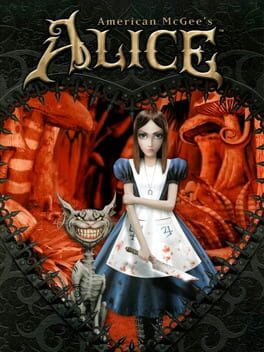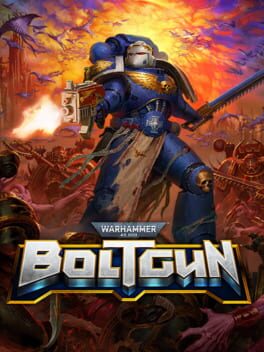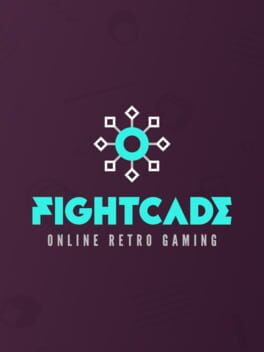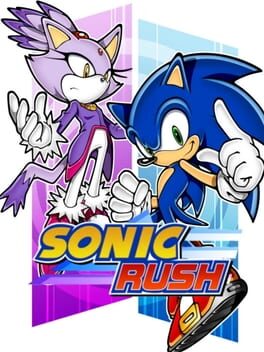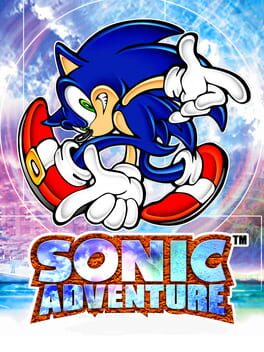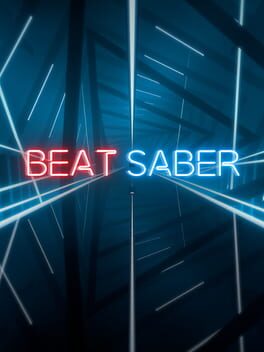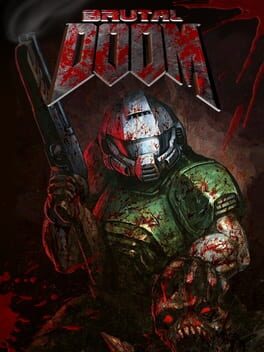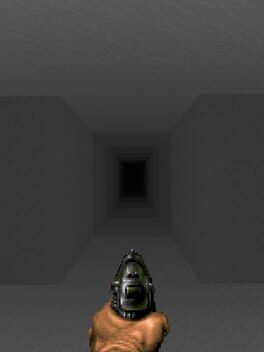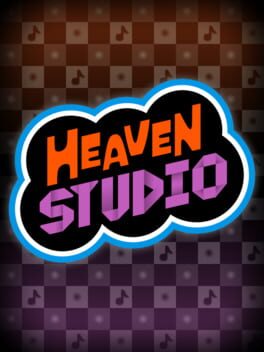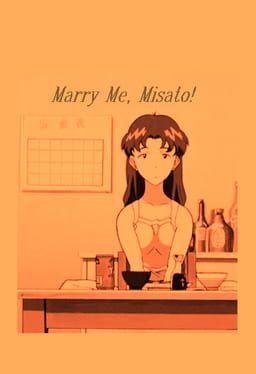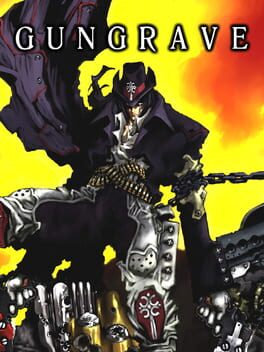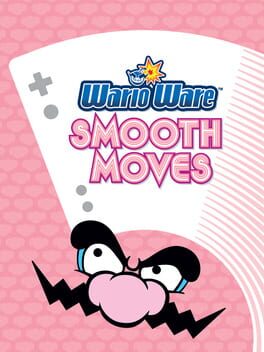652 Reviews liked by chandler
weirdly the complete antithesis of what mcgee was going for in the sequel,, the sequel is bright and colorful but ultimately dour and overly dark in tone and story. this is one of the most dark looking games ive ever played and the map layouts for each level are so utterly confounding and disorienting, a labyrinthine hell constructed by others specifically for u to suffer during. the first is a game about growth and progression, forgiveness and regret and the pain that comes w both, the sequel is concerned w regression and ig I just don’t vibe w that as much. this belongs more to an era of game design like max payne or rule of rose where ur small and the world is big and there’s plenty of ppl who don’t want you to exist within it. the structure of every world is chaotic and dizzying and scary! I love some of the weirdo imagery the enemies can conjure up like the flying bomb dropping bugs that seem almost military like.
there’s so much being said here even w like v minimal actual words being said,, alice herself conveys sm through grunts and screams it’s actually kind of wild. a simple jump to a ledge sounds blood cur-tingling and filled w anger + desperation. idk to see her suffer so often and in such extreme ways and come out the other side (at least for this game) a better and more whole person is rlly fucking fulfilling and satisfying to experience.
part of me wishes there was a third game and a better ending to both alice the character and the series, but also I realize that this series obv took a lot out of mcgee and was coming from a place that’s maybe better left sitting dormant for his own mental health. he seems kind of happy as a retired old guy living in shanghai that’s left behind a wealth of art that means a lot to a lot of ppl and now just makes emo plushes that while don’t mean rlly anything to me obv mean something to enough ppl. I think that’s nice ^_^
there’s so much being said here even w like v minimal actual words being said,, alice herself conveys sm through grunts and screams it’s actually kind of wild. a simple jump to a ledge sounds blood cur-tingling and filled w anger + desperation. idk to see her suffer so often and in such extreme ways and come out the other side (at least for this game) a better and more whole person is rlly fucking fulfilling and satisfying to experience.
part of me wishes there was a third game and a better ending to both alice the character and the series, but also I realize that this series obv took a lot out of mcgee and was coming from a place that’s maybe better left sitting dormant for his own mental health. he seems kind of happy as a retired old guy living in shanghai that’s left behind a wealth of art that means a lot to a lot of ppl and now just makes emo plushes that while don’t mean rlly anything to me obv mean something to enough ppl. I think that’s nice ^_^
Take “boomer shooter” out of your vocabulary; the term has been rendered meaningless.
I knew this entire little sub-genre of first-person shooters was cooked the second that the joint advertising teams of Games Workshop and Focus Entertainment all came to the conclusion that “boomer shooter” is a marketable enough selling point to tie your multi-million dollar IP to. If, indeed, it ever did mean something, it doesn’t anymore. What a boomer shooter is, in a post-Boltgun world, is “a shooter with pixel graphics”. That’s all. And if that’s all that it was — just a Doom Eternal demake — that would be forgivable. But the reality is that Boltgun is a completely miserable experience made by people who have zero fucking clue what they’re doing, chasing after trends without so much as an inkling of understanding as to why those trends are popular in the first place. Sure, fuck it. The new Doom games are gory shooters. Throwback games made popular by studios like New Blood seem to sell well. All we need to do is put the two together, boom! Free money! Paint it all in space marines and warp and chaos and we’ll be billionaires before breakfast tomorrow. How hard could it be?
I can’t fucking stand Boltgun. For some ungodly reason, someone in charge decided that the best people to put to work on a first-person shooter would be a crack team of board game and strategy developers from Auroch Digital, all of them completely unqualified to get to work on a project such as this. Consider this your first warning sign, long before you even boot up the game; why would Focus hire out to the studio behind Achtung! Cthulhu Tactics and Beermaster: Beer Brewing Simulator to make what’s intended to be a fast, brutal, tightly-paced shooter? Is it because they genuinely believed that these were the best people for the job, or was it because some tiny management-game studio from Bristol wasn’t asking for as much money as the next guys who knew what they were doing? I don’t blame Auroch, necessarily; I know what it’s like to be way in over my head under the guidance of a boss who doesn’t know enough to understand how badly I’m fucking up.
Boltgun is a game of numbers, and not of much else. “Suit your weapon’s strength to an enemy’s toughness rating,” reads one particularly cheery loading screen tip. As requested, I take aim at a Level 3 Nurgling with my STR 5 Boltgun, and the taste of bile in the back of my throat gets harder to ignore. Locking your reticle on an enemy will give you every detail about them you could ever want to know: their name, their level, total health, current health, social security number, bank password, browser history, the works. You swap between the weapons on your hotbar and each of them tells you the exact strength and name of the equipped gun: STR 4 Boltgun, STR 3 Meltagun, STR 7 Plasma Gun. Poke around levels for long enough and you’ll find secret pickups that’ll boost the power of your weapons, adding all sorts of little tags like “Kraken Round Magazine” and “Dragonfire Round Magazine” or “Machine Spirit Upgrade”. Your HUD gets flooded with all of these details, paradoxically taking up so much space on the screen that it’s near-impossible to read any of it. One pressing question remains, throughout all of this:
Why?
What do we gain from having all of this worthless fucking information on the screen at all times? Seriously, what the fuck is the point? I don’t need to know the enemy’s level. I don’t need to know exactly how much health they have. I don’t need to know a numerical value for how strong my weapons are. I don’t need to know what type of ammo I’ve got loaded into my boltgun. I don’t need to know the maximum amount of health that an enemy could theoretically have. I don’t fucking need any of this. How are you getting lapped in your UI design by the original Doom, a game that came out three fucking decades ago and realized then that you didn’t need to tell the player all of this completely fucking worthless information? If you didn’t know before playing that Auroch were strategy game developers and not people who make shooters, this is what gives it away; such a fucking obsession with showing numbers to the player in a situation where they’re worse than useless.
And none of this would matter, really, if the game were fun. If this was all just pointless, ignorable set-dressing for a game that otherwise works fine, then I could forgive it. I can’t, though, because Boltgun commits the mortal sin of being abjectly fucking boring. This might be one of the most pathetically easy games I’ve ever played, even with the difficulty cranked as high as it can go. Enemies feel like they’re shooting at you only as a formality, firing projectiles that move in slow-motion across the screen that’ll land in a different zip code so long as you strafe left. This is true for just about every enemy that can fire something at you. All of them are so sluggish that it’s as if they’re only pulling the trigger at you because they’d get fired and lose their health insurance if they didn’t. The flamers might be one of the most unintentionally hilarious monsters I’ve ever seen in a game like this; I think doctors test for brain activity by whether or not you’ve ever taken a hit from a fireball a flamer has thrown at you. You could only ever get clipped if you were comatose. Exterminatus difficulty does seem to make projectiles go a bit faster, and spawns more numerous and more powerful enemies, but I imagine most people who have played a game before could do most of this in their sleep. Not because they’re god gamers, but because Boltgun never stops drowning the player in goodies.
Pickups are peppered fucking everywhere in all of these over-long levels, littering the floor with every single type of ammo, every single grenade, and more health and armor kits than anyone could ever possibly need. There’s a section on the right side of the screen dedicated to telling you which pickups you got, and you should get used to seeing it be filled with nothing but “Boltgun ammo full, Boltgun ammo full, Heavy bolter ammo full, Krak grenade full, Health full, Health full, Health full, Boltgun ammo full, Plasma gun ammo full, Health full, Heavy bolter ammo full, Shotgun ammo full, Health full”. Outside of Exterminatus difficulty, I don’t think you ever even need to switch weapons; you get so much ammo for every single gun that you’ll never get so much as an opportunity to run a weapon dry. Armor needs to drain to zero before enemies can start dealing direct health damage, and armor caps out at 300(!!!!!), meaning you’ll always have plenty of +100 health kits to backtrack for in the unlikely situation that your foes manage to break through your 300 armor and get to your 200 health. I walked out of every stage with more supplies than I walked into them with, even after certain stages would force me into a minimum of four purges before I was allowed to move on.
In addition to your usually loop of finding color-coded keys and unlocking color-coded doors, Boltgun takes a page from the new Doom titles with the purge mechanic, where all of the doors lock and you aren’t allowed to progress until you’ve killed everything inside. New enemies will constantly spawn in, so it’s mostly just an exercise in strafing around and firing at the teleport particle effects. Enemies spawn in slowly, and the purge arenas are often big enough that you’ll be running around trying to find where the fucking enemies actually are so you can shoot them and progress. A big part of what makes these encounters so slow is that enemies spawn in waves, where more of them refuse to teleport in until you’ve killed everything from the first wave; there’ll be some shit gunner who dies in three shots from the Boltgun meandering around two continents away, and it’s up to you to go and find him so that you can get the momentum going again. There’s no challenge, there’s no pressure, it’s just blindly wandering through these enormous arenas trying to figure out if everyone else went home and didn’t tell you.
A part of me is grateful that this is on Game Pass, because it means that I didn’t need to spend a cent of my own money beyond what I was already paying to find out how atrocious this really is. The other part of me is annoyed, because I never would have bothered trying this out had it not been offered to me as part of a package deal. The only thing it cost me was my time; the one resource I can never get more of. What a complete and utter waste. You know a game is really bad when it ignites the flames of existential dread. There were so many better things I could have done with my time, and I instead allowed this game made and marketed by clueless people to suck it all away and leave me with a taste in my mouth like I ate two servings of dirt. The bar for Warhammer games is on the fucking floor. Do yourself a favor and try to forget that this even exists. I’m sorry for writing this review and reminding you of it if you’d gotten it out of your mind.
I can offer no greater condemnation than by stating that this is a sprite-based game with vertical mouselook.
I knew this entire little sub-genre of first-person shooters was cooked the second that the joint advertising teams of Games Workshop and Focus Entertainment all came to the conclusion that “boomer shooter” is a marketable enough selling point to tie your multi-million dollar IP to. If, indeed, it ever did mean something, it doesn’t anymore. What a boomer shooter is, in a post-Boltgun world, is “a shooter with pixel graphics”. That’s all. And if that’s all that it was — just a Doom Eternal demake — that would be forgivable. But the reality is that Boltgun is a completely miserable experience made by people who have zero fucking clue what they’re doing, chasing after trends without so much as an inkling of understanding as to why those trends are popular in the first place. Sure, fuck it. The new Doom games are gory shooters. Throwback games made popular by studios like New Blood seem to sell well. All we need to do is put the two together, boom! Free money! Paint it all in space marines and warp and chaos and we’ll be billionaires before breakfast tomorrow. How hard could it be?
I can’t fucking stand Boltgun. For some ungodly reason, someone in charge decided that the best people to put to work on a first-person shooter would be a crack team of board game and strategy developers from Auroch Digital, all of them completely unqualified to get to work on a project such as this. Consider this your first warning sign, long before you even boot up the game; why would Focus hire out to the studio behind Achtung! Cthulhu Tactics and Beermaster: Beer Brewing Simulator to make what’s intended to be a fast, brutal, tightly-paced shooter? Is it because they genuinely believed that these were the best people for the job, or was it because some tiny management-game studio from Bristol wasn’t asking for as much money as the next guys who knew what they were doing? I don’t blame Auroch, necessarily; I know what it’s like to be way in over my head under the guidance of a boss who doesn’t know enough to understand how badly I’m fucking up.
Boltgun is a game of numbers, and not of much else. “Suit your weapon’s strength to an enemy’s toughness rating,” reads one particularly cheery loading screen tip. As requested, I take aim at a Level 3 Nurgling with my STR 5 Boltgun, and the taste of bile in the back of my throat gets harder to ignore. Locking your reticle on an enemy will give you every detail about them you could ever want to know: their name, their level, total health, current health, social security number, bank password, browser history, the works. You swap between the weapons on your hotbar and each of them tells you the exact strength and name of the equipped gun: STR 4 Boltgun, STR 3 Meltagun, STR 7 Plasma Gun. Poke around levels for long enough and you’ll find secret pickups that’ll boost the power of your weapons, adding all sorts of little tags like “Kraken Round Magazine” and “Dragonfire Round Magazine” or “Machine Spirit Upgrade”. Your HUD gets flooded with all of these details, paradoxically taking up so much space on the screen that it’s near-impossible to read any of it. One pressing question remains, throughout all of this:
Why?
What do we gain from having all of this worthless fucking information on the screen at all times? Seriously, what the fuck is the point? I don’t need to know the enemy’s level. I don’t need to know exactly how much health they have. I don’t need to know a numerical value for how strong my weapons are. I don’t need to know what type of ammo I’ve got loaded into my boltgun. I don’t need to know the maximum amount of health that an enemy could theoretically have. I don’t fucking need any of this. How are you getting lapped in your UI design by the original Doom, a game that came out three fucking decades ago and realized then that you didn’t need to tell the player all of this completely fucking worthless information? If you didn’t know before playing that Auroch were strategy game developers and not people who make shooters, this is what gives it away; such a fucking obsession with showing numbers to the player in a situation where they’re worse than useless.
And none of this would matter, really, if the game were fun. If this was all just pointless, ignorable set-dressing for a game that otherwise works fine, then I could forgive it. I can’t, though, because Boltgun commits the mortal sin of being abjectly fucking boring. This might be one of the most pathetically easy games I’ve ever played, even with the difficulty cranked as high as it can go. Enemies feel like they’re shooting at you only as a formality, firing projectiles that move in slow-motion across the screen that’ll land in a different zip code so long as you strafe left. This is true for just about every enemy that can fire something at you. All of them are so sluggish that it’s as if they’re only pulling the trigger at you because they’d get fired and lose their health insurance if they didn’t. The flamers might be one of the most unintentionally hilarious monsters I’ve ever seen in a game like this; I think doctors test for brain activity by whether or not you’ve ever taken a hit from a fireball a flamer has thrown at you. You could only ever get clipped if you were comatose. Exterminatus difficulty does seem to make projectiles go a bit faster, and spawns more numerous and more powerful enemies, but I imagine most people who have played a game before could do most of this in their sleep. Not because they’re god gamers, but because Boltgun never stops drowning the player in goodies.
Pickups are peppered fucking everywhere in all of these over-long levels, littering the floor with every single type of ammo, every single grenade, and more health and armor kits than anyone could ever possibly need. There’s a section on the right side of the screen dedicated to telling you which pickups you got, and you should get used to seeing it be filled with nothing but “Boltgun ammo full, Boltgun ammo full, Heavy bolter ammo full, Krak grenade full, Health full, Health full, Health full, Boltgun ammo full, Plasma gun ammo full, Health full, Heavy bolter ammo full, Shotgun ammo full, Health full”. Outside of Exterminatus difficulty, I don’t think you ever even need to switch weapons; you get so much ammo for every single gun that you’ll never get so much as an opportunity to run a weapon dry. Armor needs to drain to zero before enemies can start dealing direct health damage, and armor caps out at 300(!!!!!), meaning you’ll always have plenty of +100 health kits to backtrack for in the unlikely situation that your foes manage to break through your 300 armor and get to your 200 health. I walked out of every stage with more supplies than I walked into them with, even after certain stages would force me into a minimum of four purges before I was allowed to move on.
In addition to your usually loop of finding color-coded keys and unlocking color-coded doors, Boltgun takes a page from the new Doom titles with the purge mechanic, where all of the doors lock and you aren’t allowed to progress until you’ve killed everything inside. New enemies will constantly spawn in, so it’s mostly just an exercise in strafing around and firing at the teleport particle effects. Enemies spawn in slowly, and the purge arenas are often big enough that you’ll be running around trying to find where the fucking enemies actually are so you can shoot them and progress. A big part of what makes these encounters so slow is that enemies spawn in waves, where more of them refuse to teleport in until you’ve killed everything from the first wave; there’ll be some shit gunner who dies in three shots from the Boltgun meandering around two continents away, and it’s up to you to go and find him so that you can get the momentum going again. There’s no challenge, there’s no pressure, it’s just blindly wandering through these enormous arenas trying to figure out if everyone else went home and didn’t tell you.
A part of me is grateful that this is on Game Pass, because it means that I didn’t need to spend a cent of my own money beyond what I was already paying to find out how atrocious this really is. The other part of me is annoyed, because I never would have bothered trying this out had it not been offered to me as part of a package deal. The only thing it cost me was my time; the one resource I can never get more of. What a complete and utter waste. You know a game is really bad when it ignites the flames of existential dread. There were so many better things I could have done with my time, and I instead allowed this game made and marketed by clueless people to suck it all away and leave me with a taste in my mouth like I ate two servings of dirt. The bar for Warhammer games is on the fucking floor. Do yourself a favor and try to forget that this even exists. I’m sorry for writing this review and reminding you of it if you’d gotten it out of your mind.
I can offer no greater condemnation than by stating that this is a sprite-based game with vertical mouselook.
FightCade
2015
Sonic Rush
2005
This game owes more to noted "least funny man on the internet" Hideki Naganuma than Jet Set Radio Future. The music from the four different contributors in this Sonic DS spinoff carries the experience of what would otherwise be a "fine, not fantastic" mobile Sonic game for me. The ending of this Sonic game has genuine emotional impact, and the music playing during it might be the most underrated track in the franchise.
My major pros for this game are "I like the character they introduced and the music's really good" but that's a 4/5 sometimes, I don't know what to tell you.
My major pros for this game are "I like the character they introduced and the music's really good" but that's a 4/5 sometimes, I don't know what to tell you.
Sonic Adventure
1998
"sonic had a rough transition into 3d"
cool, weird-ass game that proudly wears its status as sega flexing its shit on the previous gen right upon its sleeve. the monolithic status this game has in the fandom and the historical context of sonic as an entity is pretty interesting to me considering there really isn't that much to it - ten solid sonic levels and then little fragments that more or less exist to flaunt the possibilities of the dreamcast and what all sega was capable of at that point. i'm really endeared by games of this era that were chock full of weird side content and minigames just to show what the fresh hardware was capable of (final fantasy x also comes to mind), and sonic adventure is maybe nothing BUT that. combine that with its weird atmosphere and bizarre, campy writing and it fits right up there with the pantheon of Weird PSX JRPGs of '99.
speaking of writing - i was surprised on a playthrough how this game basically doesn't have a story so much as it has a bunch of isolated events that happen in proximity to one another in an arbitrary and sort of staggered fashion. sonic's story may be the main draw here in terms of gameplay (and clearly the star of the show in general; he's the only one of the stories you can't knock out in an hour tops) but it's also the story where pretty much nothing of note happens. honestly as cute as tails and amy's little mini-character-arcs are the only story worth writing home about here is gamma's, which i still find really poignant and thought-provoking even as an adult... something fatalistic and genuinely dark about this power-hour of pathos, even in comparison to the really dire places that sonic adventure 2's writings and greater themes go. honestly gamma's just the best part of the game in general, between his story, his variant of hot shelter easily being the best level in the game, and the boss fight against beta being one of the game's very best. kinda wish i cared for drakengard 3 at all because i would KILL for a version of his general plot pitch that's not written for children
can't help but feel like some of these little stories deserved a bit more time in the oven; gamma's shooting gameplay and knuckles' hunting were both eventually expanded upon in SA2 but i really like the "puzzle platformer where the female protagonist has to avoid a creepy stalker" idea with amy's gameplay and how tails' levels take sonic's ethos of playing as little of the level as possible to their natural extreme... such a shame their stories take about 11 minutes apiece to complete.
definitely not as polished, focused, effortless or full of finesse as sonic adventure 2, but honestly i don't think being less Good in one linear direction makes it Bad in the opposite linear direction either. sonic adventure is a strange, curious, funky little game, and it's lovely for it.
cool, weird-ass game that proudly wears its status as sega flexing its shit on the previous gen right upon its sleeve. the monolithic status this game has in the fandom and the historical context of sonic as an entity is pretty interesting to me considering there really isn't that much to it - ten solid sonic levels and then little fragments that more or less exist to flaunt the possibilities of the dreamcast and what all sega was capable of at that point. i'm really endeared by games of this era that were chock full of weird side content and minigames just to show what the fresh hardware was capable of (final fantasy x also comes to mind), and sonic adventure is maybe nothing BUT that. combine that with its weird atmosphere and bizarre, campy writing and it fits right up there with the pantheon of Weird PSX JRPGs of '99.
speaking of writing - i was surprised on a playthrough how this game basically doesn't have a story so much as it has a bunch of isolated events that happen in proximity to one another in an arbitrary and sort of staggered fashion. sonic's story may be the main draw here in terms of gameplay (and clearly the star of the show in general; he's the only one of the stories you can't knock out in an hour tops) but it's also the story where pretty much nothing of note happens. honestly as cute as tails and amy's little mini-character-arcs are the only story worth writing home about here is gamma's, which i still find really poignant and thought-provoking even as an adult... something fatalistic and genuinely dark about this power-hour of pathos, even in comparison to the really dire places that sonic adventure 2's writings and greater themes go. honestly gamma's just the best part of the game in general, between his story, his variant of hot shelter easily being the best level in the game, and the boss fight against beta being one of the game's very best. kinda wish i cared for drakengard 3 at all because i would KILL for a version of his general plot pitch that's not written for children
can't help but feel like some of these little stories deserved a bit more time in the oven; gamma's shooting gameplay and knuckles' hunting were both eventually expanded upon in SA2 but i really like the "puzzle platformer where the female protagonist has to avoid a creepy stalker" idea with amy's gameplay and how tails' levels take sonic's ethos of playing as little of the level as possible to their natural extreme... such a shame their stories take about 11 minutes apiece to complete.
definitely not as polished, focused, effortless or full of finesse as sonic adventure 2, but honestly i don't think being less Good in one linear direction makes it Bad in the opposite linear direction either. sonic adventure is a strange, curious, funky little game, and it's lovely for it.
Persona 3 Reload
2024
persona 3 was a game with identity, intent, purpose, intentionality, heart, and, most importantly, creativity. i don't enjoy the lot i've been cast in life where i have to play bad versions of persona 3 and say why they're bad, whether it be the answer, portable, or this. reload is not just a bad remake of persona 3, it is a bad game that tells an interesting story in a ho-hum and pedestrian way. it takes so many narrative risks and choices from the original presentation and either waters them down or overly explains them to make sure the lowest common denominator doesn't have to interpret art. even divorced from its source material, this game fails to create a gameplay experience worth investing time in. as a remake, it fails to capture what persona 3 meant. as a JRPG, it is a dull affair with little challenge or complexity. persona 3 reload fails to be worth the effort it takes to play it.
the design doc of persona 3 reload had a very clear goal: leave no one behind, whether it be in story or gameplay. this results in story cutscenes being more explicit and less interpretive (compare the opening FMV with yukari) and gameplay that refuses to obstruct the player in meaningful ways. to be more specific, reload sacrifices any need for the player to become competent with its systems to make sure that anyone can beat this game. theurgy makes the game brainless and poisons basically every boss fight (ken can get a theurgy skill a little over halfway through the game that casts mediarahan + samarecarm + tetrakarn + makarakarn on the entire party). resource management is embarrassingly easy to trivialize (yukari can cast media for literally 1 (one) SP; there is a veritable buffet of SP items that you can trip over in daily life for little to no investment; theurgy overall negates the importance of SP and running out of SP is not the death knell it could be in orginal). social links as a whole are extremely easy to manage both due to point requirements being lower to accommodate for needing to spend more days on new content like linked episodes. hell, remember persona fusion? now it's been greatly dumbed down such that even triangle fusion isn't available anymore. this game is a concession that persona 3 was too ambitious and needed to be toned down. this is a remake that asserts that persona 3 did too much and tries to do less instead.
i'm not even beating the dead horse that is my opinion on party control because there's so many more issues to address. on basically every level, this game has either simplified or deescalated the complexity of its mechanics to accommodate a mainstream audience. i don't think there's inherently anything wrong with making persona 3's systems more accessible, but i think these capitulations go overboard and rob the game of compelling gameplay moments. there are no bosses in the game that truly force me to approach a challenge in a new way or think outside the box in the way that bosses like change relic did. every boss in this game is made longer to accommodate for theurgy damage values without any sort of intelligent design to make the fights feel more exciting for that length of time. boss fights are longer and easier because it's more cinematic to see mitsuru skate around and use her theurgy instead of letting the player use their own competency-based skills and strategy to end the fight. i am not the person who's going to cry that atlus sold out or whatever, but i am the person who's going to tell you that persona 3 reload feels like an undercooked experience because it consistently refuses to ask anything of the player. this game is easy, this game is simple, and this game is uninteresting.
above all else, this game begs one question: who on earth is telling atlus/sega that persona games need to be longer and have more content? persona 3 was a game that had a slowburn start that reload now turns into a bloated nightmare. everything takes so much longer in reload and everything feels more belabored, so i can't blame anyone for getting burnt out or even fucked off from this game's plot by the time things start picking up steam. on top of this, a lot of the new slice of life content wastes so much of the player's time. why do we need multiple scenes dedicated to kenji's performance on job day? i remember when saying that persona 3 was 70 hours felt like i was talking about this gargantuan piece of art. meanwhile, in reload, i hit 70 hours somewhere between september and november. these games do not need to be this long, and it actively ruins the experience to do so. persona 5 being a triple digit hour experience was a bad thing, not something to aspire to.
it's hard to not be at least a little offended because, whether or not P Studio intended it, they have basically hollowed out what made persona 3 so unique, so special. reload looks drab and unimpressive in UE4, and so much of the moody visuals get lost in the graphical fidelity. iwatodai dorm feels too bright, and then when january rolls around, they make the color scheme so muted that it is genuinely comedic. and there's just some really baffling and ugly visual decisions they made, like how everyone in club escapade stands motionlessly in pose. meanwhile, lotus juice has his fingerprints all over the OST in a way that just doesn't work ("mindin' my biz, so mind your own biz"). persona 3 was more than just a game with impressive systems that engaged the player, it was also a piece of art that had an aesthetic that gets lost here. this game feels completely identity-less when compared to the original because the original was both a deconstruction and a hybrid of genres. in many ways, reload doesn't just fail to live up to that artistic intent, it outright doesn't seem to know it was even there in the first place.
and i get it, as a fan of persona 3, my opinion has a giant asterisk at the end of it. why listen to a star wars fan tell you about why phantom menace is the worst movie ever? i will own up and openly admit i expected this game to be bad and had greatly wanted it to not exist. i had a feeling atlus would fuck it up somehow. i don't like being right about that. at the same time, i think there are missteps here that would stand out regardless of familiarity with the source material. yukari's edginess is completely deleted from her character here and she now just sounds and acts like chie on vyvanse rather than a girl with abandonment issues and trauma. fuuka got turned from "weird girl who serves as the empathetic core of the cast" to "girl who could have a thrilling conversation about spoiled milk". and reload isn't the first time akihiko's been sanded down to "protein fanatic who trains a lot", but it's probably the most offensive here. wouldn't it be really fucking funny if, the whole time you were studying with him, akihiko was doing something wacky like squatting above his chair instead of sitting normally?
these characters have been reinterpreted so much that they've lost their core identity that was integral to the plot of persona 3. i don't get the feeling that i'm seeing akihiko or mitsuru, i instead sense that i'm getting how someone interprets them after nearly 2 decades of fandom and spinoff content. yukari still has those "mean" lines but they lack any emotional root, so they come off as nonsense mood swings rather than a scared girl lashing out. and i'll just say it, karen strassman clears the fuck out of dawn bennett when you compare the final aigis monologues (fwiw, in both these instances, i blame the direction, not the VAs). these characters have been done better and it's really jarring that reload tries to flatten them rather than give them more dimensionality.
there's room to broadly interpret these characters, but constantly trying to make a self-serious character like akihiko the butt of a joke that he's in on speaks to how much he's being mischaracterized here. when akihiko was in a comedic scene, it was because he was the straight man, not because he was a this big goofball constantly playing to the crowd. these characters don't feel like themselves in a profound way, and i'd have to wonder how much that comes across to anyone who hasn't played original. does akihiko just seem like a wildly contradictory character to new players? truthfully, i have no idea if any of these people would've resonated with me had this been my first exposure to them.
i don't hate what all of reload's new content wrt characterization, and i honestly really liked some of the stuff they added for shinjiro and ken. but there's just as much that is unnecessary and outright bad. when we said they wanted more backstory on strega, we didn't mean that we wanted you to turn takaya into another akechi. if you're going to remake persona 3, why even bother if you're going to do such a disservice to its characters and setting? sure, you made some of the UI stuff look neater and more Persona 5-y, but what does that meaningfully add to the experience? when i saw the trailer for reload, i immediately asked myself "what does the water motif have to do with persona 3? why is the main character sinking into water? what are they going to do with that?" and it turns out they just wanted a cool main menu animation and nothing else. i want to say that P Studio was just misguided, but some of this content is so actively bad that it makes me wonder if any of them even liked persona 3. so much of this feels like it's trying to fix something that isn't broken, like it's an apology for the source material. this isn't a persona 3 remake for people who liked persona 3. but, then again, who else was it supposed to be for if not people who wanted another persona 5? persona 5 is the new cash cow and my dread for this being a P5ified version of persona 3 was well-founded.
i kept trying to go "how would i feel about this game if it wasn't a remake of a game i love?" and that's an impossible question for me to answer. i can never know because i will never play this with the eyes and ears of someone who didn't play the original. again, as much as i've come to detest this game, i don't have it in my heart to give this a lower score, mostly out of pity, but also out of overcorrecting my harsh opinion as a fan of the original. still, i think many of reload's failings come from a place of trying to simultaneously be a remake and game for everyone. i don't think it's wrong for games to put off people. in fact, the best games often aren't for everyone because they can't be. P Studio emphasized making a game that was so mainstreamed and accessible that it would never present any obstacle or mechanic that could alienate players at the cost of making a game that players could actually be engaged with. i can't think of a broader way you could miss the mark with a persona 3 remake.
the design doc of persona 3 reload had a very clear goal: leave no one behind, whether it be in story or gameplay. this results in story cutscenes being more explicit and less interpretive (compare the opening FMV with yukari) and gameplay that refuses to obstruct the player in meaningful ways. to be more specific, reload sacrifices any need for the player to become competent with its systems to make sure that anyone can beat this game. theurgy makes the game brainless and poisons basically every boss fight (ken can get a theurgy skill a little over halfway through the game that casts mediarahan + samarecarm + tetrakarn + makarakarn on the entire party). resource management is embarrassingly easy to trivialize (yukari can cast media for literally 1 (one) SP; there is a veritable buffet of SP items that you can trip over in daily life for little to no investment; theurgy overall negates the importance of SP and running out of SP is not the death knell it could be in orginal). social links as a whole are extremely easy to manage both due to point requirements being lower to accommodate for needing to spend more days on new content like linked episodes. hell, remember persona fusion? now it's been greatly dumbed down such that even triangle fusion isn't available anymore. this game is a concession that persona 3 was too ambitious and needed to be toned down. this is a remake that asserts that persona 3 did too much and tries to do less instead.
i'm not even beating the dead horse that is my opinion on party control because there's so many more issues to address. on basically every level, this game has either simplified or deescalated the complexity of its mechanics to accommodate a mainstream audience. i don't think there's inherently anything wrong with making persona 3's systems more accessible, but i think these capitulations go overboard and rob the game of compelling gameplay moments. there are no bosses in the game that truly force me to approach a challenge in a new way or think outside the box in the way that bosses like change relic did. every boss in this game is made longer to accommodate for theurgy damage values without any sort of intelligent design to make the fights feel more exciting for that length of time. boss fights are longer and easier because it's more cinematic to see mitsuru skate around and use her theurgy instead of letting the player use their own competency-based skills and strategy to end the fight. i am not the person who's going to cry that atlus sold out or whatever, but i am the person who's going to tell you that persona 3 reload feels like an undercooked experience because it consistently refuses to ask anything of the player. this game is easy, this game is simple, and this game is uninteresting.
above all else, this game begs one question: who on earth is telling atlus/sega that persona games need to be longer and have more content? persona 3 was a game that had a slowburn start that reload now turns into a bloated nightmare. everything takes so much longer in reload and everything feels more belabored, so i can't blame anyone for getting burnt out or even fucked off from this game's plot by the time things start picking up steam. on top of this, a lot of the new slice of life content wastes so much of the player's time. why do we need multiple scenes dedicated to kenji's performance on job day? i remember when saying that persona 3 was 70 hours felt like i was talking about this gargantuan piece of art. meanwhile, in reload, i hit 70 hours somewhere between september and november. these games do not need to be this long, and it actively ruins the experience to do so. persona 5 being a triple digit hour experience was a bad thing, not something to aspire to.
it's hard to not be at least a little offended because, whether or not P Studio intended it, they have basically hollowed out what made persona 3 so unique, so special. reload looks drab and unimpressive in UE4, and so much of the moody visuals get lost in the graphical fidelity. iwatodai dorm feels too bright, and then when january rolls around, they make the color scheme so muted that it is genuinely comedic. and there's just some really baffling and ugly visual decisions they made, like how everyone in club escapade stands motionlessly in pose. meanwhile, lotus juice has his fingerprints all over the OST in a way that just doesn't work ("mindin' my biz, so mind your own biz"). persona 3 was more than just a game with impressive systems that engaged the player, it was also a piece of art that had an aesthetic that gets lost here. this game feels completely identity-less when compared to the original because the original was both a deconstruction and a hybrid of genres. in many ways, reload doesn't just fail to live up to that artistic intent, it outright doesn't seem to know it was even there in the first place.
and i get it, as a fan of persona 3, my opinion has a giant asterisk at the end of it. why listen to a star wars fan tell you about why phantom menace is the worst movie ever? i will own up and openly admit i expected this game to be bad and had greatly wanted it to not exist. i had a feeling atlus would fuck it up somehow. i don't like being right about that. at the same time, i think there are missteps here that would stand out regardless of familiarity with the source material. yukari's edginess is completely deleted from her character here and she now just sounds and acts like chie on vyvanse rather than a girl with abandonment issues and trauma. fuuka got turned from "weird girl who serves as the empathetic core of the cast" to "girl who could have a thrilling conversation about spoiled milk". and reload isn't the first time akihiko's been sanded down to "protein fanatic who trains a lot", but it's probably the most offensive here. wouldn't it be really fucking funny if, the whole time you were studying with him, akihiko was doing something wacky like squatting above his chair instead of sitting normally?
these characters have been reinterpreted so much that they've lost their core identity that was integral to the plot of persona 3. i don't get the feeling that i'm seeing akihiko or mitsuru, i instead sense that i'm getting how someone interprets them after nearly 2 decades of fandom and spinoff content. yukari still has those "mean" lines but they lack any emotional root, so they come off as nonsense mood swings rather than a scared girl lashing out. and i'll just say it, karen strassman clears the fuck out of dawn bennett when you compare the final aigis monologues (fwiw, in both these instances, i blame the direction, not the VAs). these characters have been done better and it's really jarring that reload tries to flatten them rather than give them more dimensionality.
there's room to broadly interpret these characters, but constantly trying to make a self-serious character like akihiko the butt of a joke that he's in on speaks to how much he's being mischaracterized here. when akihiko was in a comedic scene, it was because he was the straight man, not because he was a this big goofball constantly playing to the crowd. these characters don't feel like themselves in a profound way, and i'd have to wonder how much that comes across to anyone who hasn't played original. does akihiko just seem like a wildly contradictory character to new players? truthfully, i have no idea if any of these people would've resonated with me had this been my first exposure to them.
i don't hate what all of reload's new content wrt characterization, and i honestly really liked some of the stuff they added for shinjiro and ken. but there's just as much that is unnecessary and outright bad. when we said they wanted more backstory on strega, we didn't mean that we wanted you to turn takaya into another akechi. if you're going to remake persona 3, why even bother if you're going to do such a disservice to its characters and setting? sure, you made some of the UI stuff look neater and more Persona 5-y, but what does that meaningfully add to the experience? when i saw the trailer for reload, i immediately asked myself "what does the water motif have to do with persona 3? why is the main character sinking into water? what are they going to do with that?" and it turns out they just wanted a cool main menu animation and nothing else. i want to say that P Studio was just misguided, but some of this content is so actively bad that it makes me wonder if any of them even liked persona 3. so much of this feels like it's trying to fix something that isn't broken, like it's an apology for the source material. this isn't a persona 3 remake for people who liked persona 3. but, then again, who else was it supposed to be for if not people who wanted another persona 5? persona 5 is the new cash cow and my dread for this being a P5ified version of persona 3 was well-founded.
i kept trying to go "how would i feel about this game if it wasn't a remake of a game i love?" and that's an impossible question for me to answer. i can never know because i will never play this with the eyes and ears of someone who didn't play the original. again, as much as i've come to detest this game, i don't have it in my heart to give this a lower score, mostly out of pity, but also out of overcorrecting my harsh opinion as a fan of the original. still, i think many of reload's failings come from a place of trying to simultaneously be a remake and game for everyone. i don't think it's wrong for games to put off people. in fact, the best games often aren't for everyone because they can't be. P Studio emphasized making a game that was so mainstreamed and accessible that it would never present any obstacle or mechanic that could alienate players at the cost of making a game that players could actually be engaged with. i can't think of a broader way you could miss the mark with a persona 3 remake.
Beat Saber
2019
Brutal Doom
2012
Silent Hill 2
2001
a word of advice: if you love psychological horror, especially silent hill, YOU NEED TO READ CRIME & PUNISHMENT. i understand how a 600 page book released 150 years ago in a format that doesn't exist anymore can seem off-putting or intimidating; i promise you it hasn't aged a day. crime & punishment can suffocate you with tension and anxiety comparable to any horror movie or game using words alone. the characters are oceans of beauty and flaws that will stick with you forever. without dostoevsky, there would be no shining, there would be no subahibi, and there would be no silent hill. read it and thank me later.
Heaven Studio
2024
Marry Me, Misato!
2005
Marry Me, Misato!
2005
Gungrave
2002
the gnarliest video game. pure shonen schlock. style is substance type beat (shoutout maraganger). has the first 10 seconds of the final cutscene play in-engine so you can take the dramatic plot relevant killshot yourself. starts its kickassery when the intro cutscene plays and doesn't stop until the credits roll. a buttonmashy bad time for any bimbos that bumble in front of your boomstick. play it on hard mode, you scrawny fuck.
On the surface, WarioWare is a simple game about a city full of quirky people and tasking the player with goofy, timed minigames. But that's just what the government would like you to believe. This is an in-depth analysis of the themes of loss, individuality, conformity, addiction, and gnostic religious symbolism in WarioWare: Smooth Moves for the Nintendo Wii.
Deep beneath the wahahas and the groovy cats dancing is a tale of sorrow. A tale of loss and regret. A tale of raw humanity—on display for the world to see and look within themselves and ask, "am I Dribble... or am I Spitz?"
In a controversial move for Nintendo, one of WarioWare's major characters is a young witch named Ashley. Her sole intent is to separate humanity from God and devote her life to the dark lord Lucifer, wreaking chaos upon Diamond City. Her descent into madness highlights the strengths of Nintendo's greatest writers and religious researchers. I am inclined to believe this is a straight translation of a passage from the Kabbalah long lost to time.
Kat + Ana = Katana. Makes you think.
The sheer complexity behind some of the late game stages demands we stop our mindless flailing of the Wiimote and start asking where our Nunchuk adapters are. When did life pass us by? Much like 9-Volt's Game & Watch system, we too are broken.
Possibly the most compelling story is that of the mad scientist. Penny's devotion to truth and the sciences holds a mirror to our own misguided society. She abandons and outright rejects God as she continues down her path of science. Morals cast aside for the sake of what if, just as Frakenstein had. Penny's creations breed nothing but unspeakable evils and destruction. Her first victim—the unknowing Wario himself.
As Wario comes face to face with the demi-urge unleashed by Penny's selfish scientific pursuits, Wario is split into many horrid abominations. The coalition of Mini-Warios as they march headlong into the field of strawberries represents our own journey into the unknown terror we call life. The strawberry represents our innermost desires while the congregation of miniature Warios represents our desire to belong to a group, even at the cost of our own individuality.
So where does this leave us? What can we learn from our experiences during WarioWare: Smooth Moves on the Nintendo Wii? The truth may be difficult for us to hear, but WarioWare is here to tell us anyway. Jesus was black. Ronald Reagan was the devil. And the government is lying to us about 9/11.
Deep beneath the wahahas and the groovy cats dancing is a tale of sorrow. A tale of loss and regret. A tale of raw humanity—on display for the world to see and look within themselves and ask, "am I Dribble... or am I Spitz?"
In a controversial move for Nintendo, one of WarioWare's major characters is a young witch named Ashley. Her sole intent is to separate humanity from God and devote her life to the dark lord Lucifer, wreaking chaos upon Diamond City. Her descent into madness highlights the strengths of Nintendo's greatest writers and religious researchers. I am inclined to believe this is a straight translation of a passage from the Kabbalah long lost to time.
Kat + Ana = Katana. Makes you think.
The sheer complexity behind some of the late game stages demands we stop our mindless flailing of the Wiimote and start asking where our Nunchuk adapters are. When did life pass us by? Much like 9-Volt's Game & Watch system, we too are broken.
Possibly the most compelling story is that of the mad scientist. Penny's devotion to truth and the sciences holds a mirror to our own misguided society. She abandons and outright rejects God as she continues down her path of science. Morals cast aside for the sake of what if, just as Frakenstein had. Penny's creations breed nothing but unspeakable evils and destruction. Her first victim—the unknowing Wario himself.
As Wario comes face to face with the demi-urge unleashed by Penny's selfish scientific pursuits, Wario is split into many horrid abominations. The coalition of Mini-Warios as they march headlong into the field of strawberries represents our own journey into the unknown terror we call life. The strawberry represents our innermost desires while the congregation of miniature Warios represents our desire to belong to a group, even at the cost of our own individuality.
So where does this leave us? What can we learn from our experiences during WarioWare: Smooth Moves on the Nintendo Wii? The truth may be difficult for us to hear, but WarioWare is here to tell us anyway. Jesus was black. Ronald Reagan was the devil. And the government is lying to us about 9/11.
